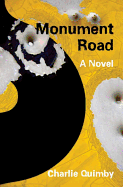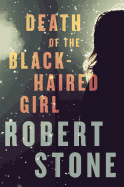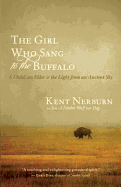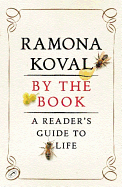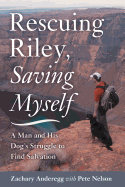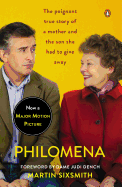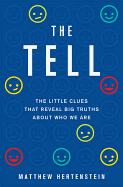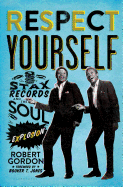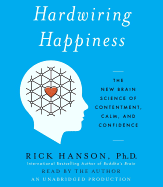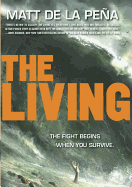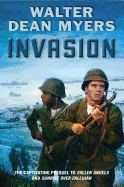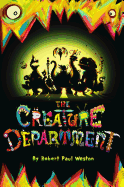 |
| photo: Tom Dotson |
A few weeks ago I sat down with Tom Nissley over cappuccinos and mochas to talk about his book, A Reader's Book of Days (Norton, $24.95). It was the eve of his book tour, and he said it was nice to practice with someone he knew before he started. I thought it was nice to get to him before he became jaded from the usual questions (yes, I did ask him how long it took to research and write).
A Reader's Book of Days is supremely entertaining, and hands down the best gift book of the year for bibliophiles and casual readers alike. It's a collection of dates, stories, excerpts and clever illustrations that will surprise and amuse; start with your birthday, or check the index for a favorite author, and you'll soon be happily paging through.
What makes this book not just fun, but different? For one thing, Nissley wanted to "tell stories from the invented lives of fiction alongside those of the writers themselves." Thus, on June 9, the fictional Dana Franklin in Octavia Butler's Kindred disappears from her California apartment, and Charles Dickens was caught in a train wreck that haunted him for the rest of his life.
Perusing the index is a delight for the unexpected connections Nissley has found. Look up entries for Dorothy Sayers and find that in 1962, Joe Orton and Kenneth Halliwell were arrested for stealing 72 library books and cutting pages from 1,653 art books to decorate their flat. They also doctored dozens of library book covers and added mildly obscene jacket blurbs to... Dorothy Sayers novels.
Nissley has created a recommended reading list for each month. August brings eight titles, including The Member of the Wedding and The Guns of August, and we learn in Kitchen Confidential that Anthony Bourdain, as a boy in France, tasted his first oyster in August: "I'd not only survived--I'd enjoyed." It's gratifying to find a favorite title in his recommended reading (A Century of November), and to find a title that may prove to be a new favorite (this may finally get me to read The Moviegoer).
You have said that you wanted to write a novel; in fact, you announced it to 10 million Jeopardy viewers while on your winning streak. Is this book a detour or a change of mind?
Oh, I still want to write a novel! And I am. But there is a kind of reference book that I love--one that you actually read, that has personality, like David Thomson's Biographical Dictionary of Film, or Bill James's Historical Baseball Abstract. The Book of Lists may have been the most formative book of my youth.
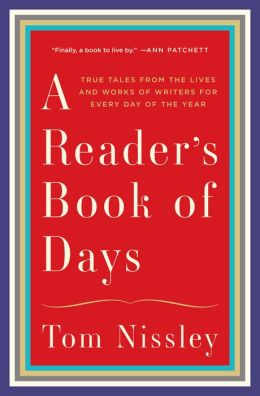 The index to A Reader's Book of Days is so much fun: day jobs, suicides, gambling; famous non-writers like Mia Farrow, or Proust's good friend Charles Ephrussi, who's connected to writer Edmund de Waal. It seems that you have everyone imaginable in there.
The index to A Reader's Book of Days is so much fun: day jobs, suicides, gambling; famous non-writers like Mia Farrow, or Proust's good friend Charles Ephrussi, who's connected to writer Edmund de Waal. It seems that you have everyone imaginable in there.
It could have easily have turned into "the endless index," but my editor, Matt Weiland, reined me in (while saying that it totally captures the spirit of the book). But some obvious people are not in it, since many writers don't use dates in their books (Nabokov, Kafka, Marilynne Robinson, Shirley Hazzard), and others have little documentation of their lives, so I had to settle on birth dates (Mary Oliver, Penelope Fitzgerald). It pained me to use so little of favorite authors like Hazzard and Angela Carter.
The illustrations are a treat, too.
This project turned into a "real" book when I found the illustrator, Joanna Neborsky. She created a poster called "A Partial Inventory of Gustave Flaubert's Personal Effects" that perfectly captured the everyday-ness of his life, so I knew that her art would be just the thing A Reader's Book of Days. And I got to tell her things like, "Please draw Theodore Dreiser holding two hot dogs," and she would.
How long did this take?
A very long year! I had to be obsessed to do this, and I often didn't know what actual day it was. After I did a sample week for the book proposal, I started with the obvious stuff and began spending every day in the library. I skimmed indexes with greater and greater efficiency and figured out how to make gold from the smallest of nuggets.
What are a few of your favorite critical pans?
In 1954, Edmund Wilson wrote to Vladimir Nabokov after reading Lolita: "I like it less than anything else of yours I have read.... Nasty subjects may make fine books; but I don't feel you have got away with this."
In 2012, Dwight Garner had this to say about Richard Bradford's Martin Amis: "Reading Martin Amis: The Biography is like watching a moose trying to describe a leopard, using only its front hooves."
And some surprises?
Charlotte Brontë hated Jane Austen: "If this is heresy--I cannot help it." Tolkien didn't like Dorothy Sayers (or Walt Disney, saying that he had a "heartfelt loathing" for his works).
I came across so many people popping up where you don't expect them. One of my favorite books is The Friends of Eddie Coyle by George Higgins. When G. Gordon Liddy was pardoned by Jimmy Carter, his lawyer was George Higgins, who also defended Eldridge Cleaver.
What are you reading now? What has excited you recently? Do you re-read books?
I've been too distracted to read, but now that the book is out, I'm taking the new Jonathan Lethem, Dissident Gardens, with me on my book tour. I'm always interested in Lethem, but especially in this one, which is set among Communists in the Sunnyside neighborhood in Queens, which happens to be my mother-in-law's exact upbringing.
My favorite book this year--actually, the best novel I've read in years--is The Watch Tower by Elizabeth Harrower, an Australian author. It's a reissue from the '60s and came highly recommended at Village Books.
I do re-read books; I think it's one of the great pleasures. I love the experience so much, it became one of the reasons to go to grad school. I carry around The Prime of Miss Jean Brodie by Muriel Spark and The Transit of Venus by Shirley Hazzard. They are inspirational. --Marilyn Dahl, editor, Shelf Awareness for Readers
Tom Nissley: A Year Obsessed
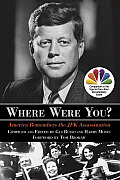 To commemorate the 50th anniversary of JFK's death, publishers have released dozens of new titles. Here are a few that caught my attention, beginning, appropriately enough, with Where Were You?: America Remembers the JFK Assassination by Gus Russo and Harry Moses.
To commemorate the 50th anniversary of JFK's death, publishers have released dozens of new titles. Here are a few that caught my attention, beginning, appropriately enough, with Where Were You?: America Remembers the JFK Assassination by Gus Russo and Harry Moses.



 The index to A Reader's Book of Days is so much fun: day jobs, suicides, gambling; famous non-writers like Mia Farrow, or Proust's good friend Charles Ephrussi, who's connected to writer Edmund de Waal. It seems that you have everyone imaginable in there.
The index to A Reader's Book of Days is so much fun: day jobs, suicides, gambling; famous non-writers like Mia Farrow, or Proust's good friend Charles Ephrussi, who's connected to writer Edmund de Waal. It seems that you have everyone imaginable in there.